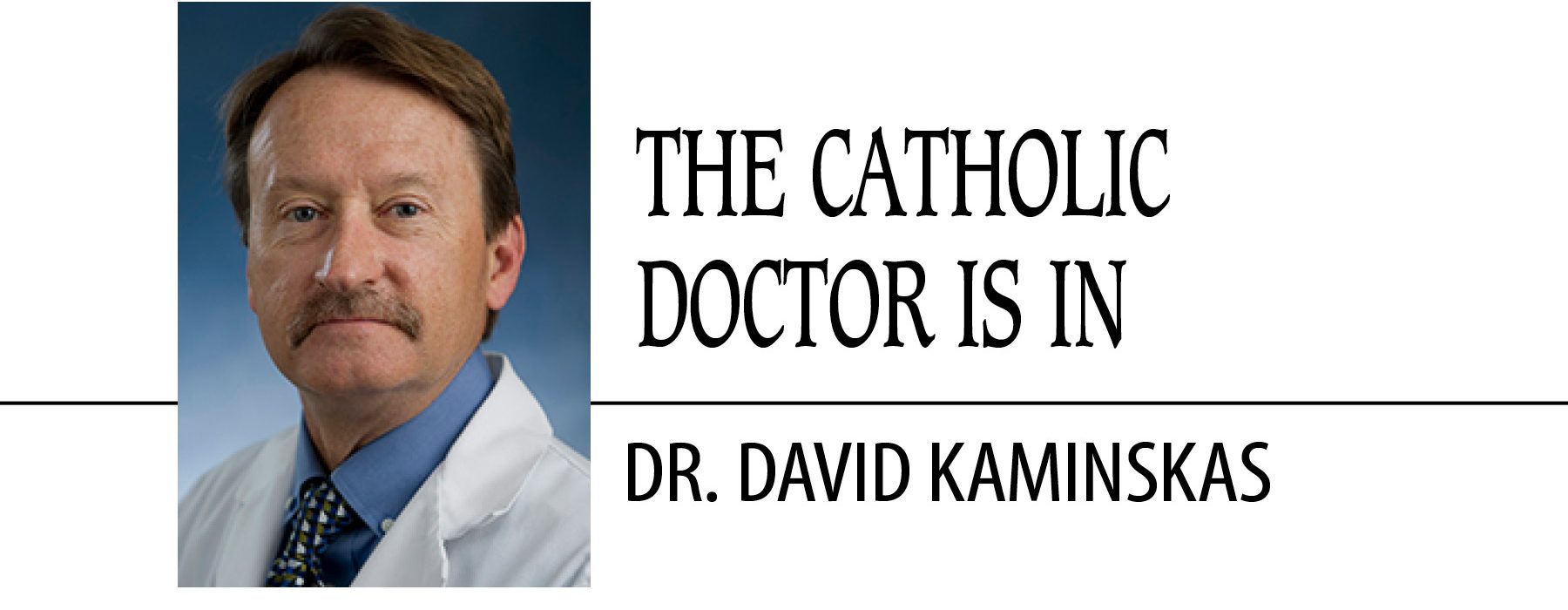November 5, 2020 // Perspective
Prepare for end-of-life decision-making
We all want to live life to the fullest and use it for the glory of God, but we also should take the time to plan for our death. We need to decide what our wishes would be and express them in a health care directive. As Catholics, we need to make decisions that align ourselves with the teachings of the Catholic Church. You cannot be confident that your hospital or physician will treat you in a way consistent with a Catholic view of human dignity.
A health care directive usually starts out with a statement that if I am incapacitated and can no longer actively guide my medical care, these are my wishes. Then, there is usually a statement indicating that if you have a terminal illness or have significant brain damage that you request not to be kept alive by life support systems such as a ventilator. This directive will also typically allow you to indicate whether or not to provide nutrition and hydration. It is not acceptable to bring death on by starvation or dehydration. The Catholic Church teaches that adequate calories and fluids need to be given, even by artificial means, if they are able to be assimilated by the patient and if their provision is not unduly burdensome to him or her. For example, if eating causes nausea, pain or discomfort when death is imminent, then deciding not to eat for a period of days is reasonable and declining artificial nutrition in this scenario would be acceptable as well.
In my practice, as I take care of end-stage heart failure patients, I ask the patient and family about their advance directives. A common response is “I already have a living will.” Unfortunately, a major drawback of a living will is that it usually does not give adequate guidance for the majority of real-life situations. What if you are elderly and on your fourth hospitalization for congestive heart failure in three months? Would you want to be put on a ventilator if there is little chance for recovery?
Living wills usually do not clarify these serious questions. That is why each time you are admitted to a hospital or an extended care facility, you should make sure your wishes are specified. You need to tell your doctor whether or not you would want to be resuscitated with CPR, cardioverted (shocked), or be placed on a ventilator. Unfortunately, some physicians are just as uncomfortable as their patients with this conversation and avoid the discussion. That is why patients need to advocate for themselves and take control of their last days as they get closer to death.
In your health care directive, you should appoint a health care representative. This person would make decisions for you if you were no longer able to speak for yourself. Most people who are married will have their spouse take this responsibility, but sometimes another close family member is chosen who might be better qualified to make end-of-life decisions for you.
Catholics are not required to use all available means to prolong their life. Sometimes the options available could be considered extraordinary and too burdensome, such as when someone’s cancer continues to advance despite treatment. At that point, you can say enough is enough and stop treatment that has become ineffective.
You should also make provisions for the most important medicine — the sacraments. Through reception of confession, anointing or the sick and the holy Eucharist, we become prepared to enter our Father’s house. We should all pray that we will have the wisdom to know and the courage to accept when to embrace the ultimate gift from God, eternal life after death. For as Romans 14:8 says, “Whether we live or die it must be for the Lord. Alive or dead, we still belong to the Lord.”
For more information log on to https://www.archindy.org/plannedgiving/documents/Health%20Care%20Directives.pdf, which was created by the Indiana Catholic Conference to help guide Catholics with their health care directives.
Lisa Everett, the director of Marriage and Family Ministry for the Diocese of Fort Wayne-South Bend, has been an invaluable resource for me over the years as I have written this column. I would like to thank her for all of her assistance.
The best news. Delivered to your inbox.
Subscribe to our mailing list today.






